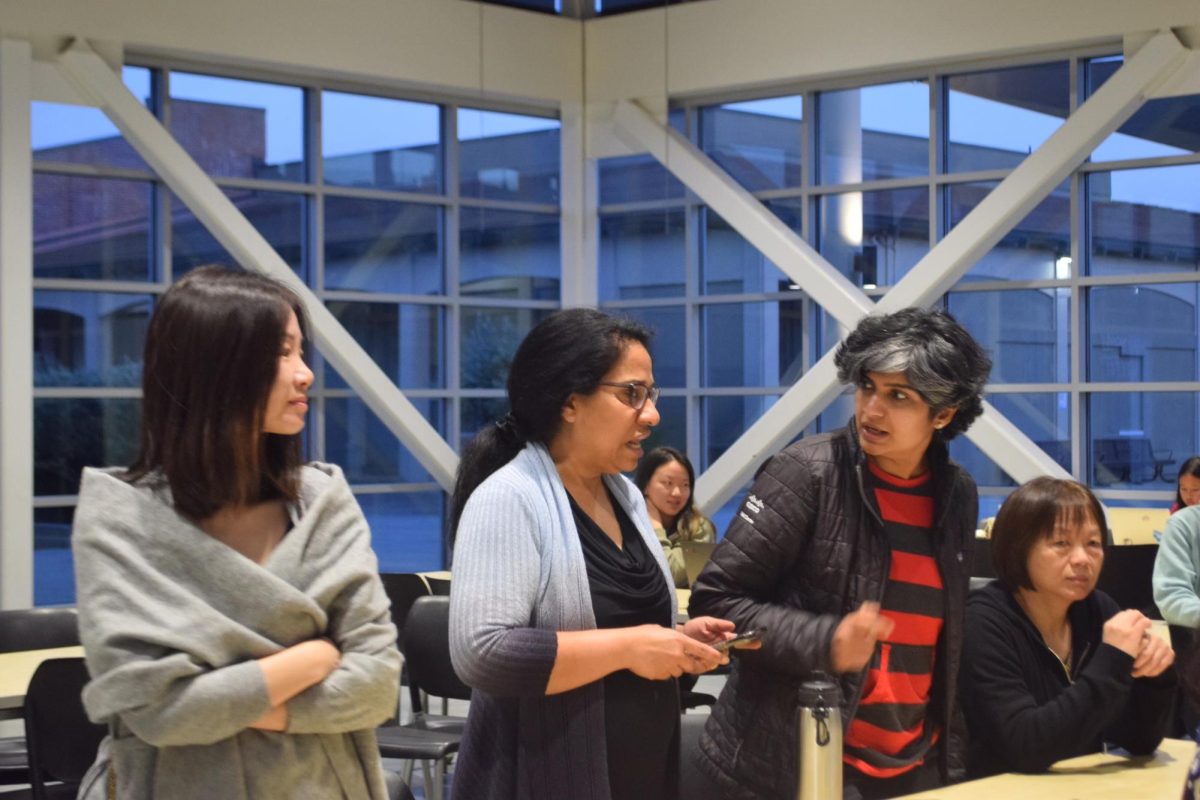On Oct.13, Biology teacher Lora Lerner received a new Chromebook cart from the school district for her classroom. She dragged the cart to the corner of B106 with great satisfaction and considered the future usage of these computers. MVHS and Homestead High School are part of the pilot program, in which Biology classes of the two schools are first supplied with Chromebooks to accommodate the changing Next Generation Science Standard.
NGSS is a standard for Calif. public schools that lists out the content that should be included in the curriculum, such as cell biology and ecology. Compared to the English and Mathematics Common Core courses for students throughout the nation, NGSS is only statewide, and has focused more on the content than the skills required for academic thinking. As a result, people have started to seek changes in NGSS so that it will include more skills and prioritize deeper understandings of how things work. As part of the effort to help students move toward the new NGSS, the Academic Deputy Superintendent of the FUHSD district, Kate Jamentz, discussed with biology teachers from all five schools in the district and decided to bring in Chromebooks to Biology classrooms at MVHS and HHS, using part of the Instructional Materials Budget to try out the new technological environment.
These new chromebooks aim to make changes to the science learning environment, especially when time and energy from teachers and money from the district budget willingly paid for this project. According to Lerner, the Biology teachers attended one training before the carts came in, and they will have more trainings in the future. The goal of the training is to make the best use of the Chromebooks as teaching materials.
The Chromebooks may bring advantages to students learning about science because of its ability to organize data and present results. For instance, when biology classes are doing labs, they can use the computer to process all the data, and the computers will help the entire class compare results. However, the future usage of the computers are yet to be determined.
Adding to the chromebooks’ strong data processing ability, Lerner also mentions the variety of information chromebooks would bring to students. Most importantly, when the highly-priced textbooks are difficult to replace, especially when they are as old as the freshmen who are learning from the books, chromebooks may provide digital textbook content to student. This may solve future problems about textbook usage and replacement, especially when there are constant changes and new discoveries occurring in the science field.
Although every Biology class would have access of the chromebooks as the result of the program, Biology teacher Pamela Chow didn’t get a new chromebook cart since she only teaches one regular biology class besides her AP Biology courses. Chow also has a Chromebook cart from the previous years, which allows her to make adjustments in curriculum without new Chromebooks.
FUHSD Director of Technology Menko Johnson informed that since each chromebook costs around $250, with $1,700 for the cart itself, a Chromebook cart consisting of 36 Lenovo Chromebooks would be just under $11,000. The five regular biology classrooms that are supplied with new Chromebook carts, not counting Chow’s room, cost in total of approximately $55,000. Johnson also clarified that those chromebooks were selected by their special features that are useful for science, such as spill resistant keyboard, rotatable camera and extra rugged case.
How Chromebooks in classrooms will bring different benefits to the students and teachers still remains a question, but there is one important thing that Lerner wants to tell all the students.
“Computers can perform functions in data analysis… however, the process of [interpretations] is always students’ minds,” Lerner said.













